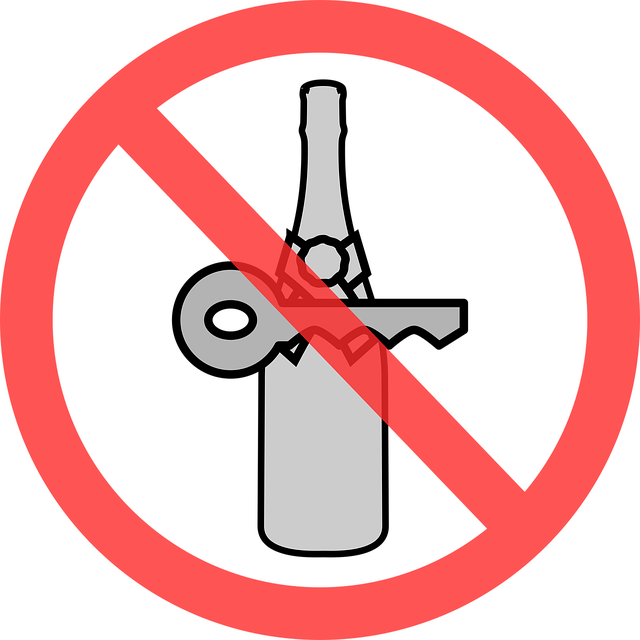High-Risk Reoffender DUI Management is a tailored approach to reduce recidivism in individuals with a history of driving under the influence, addressing deeper issues like substance abuse and poor decision-making. By shifting from one-size-fits-all sentencing to personalized interventions—including counseling, treatment, community service, and advanced tracking technologies—communities can disrupt the cycle of DUI reoffending, enhancing public safety and saving judicial resources. Effective programs combine structured monitoring, education, rehabilitation, and peer support, leveraging evidence-based practices like CBT to foster positive behavioral change and create safer communities.
In the pursuit of safer communities, exploring alternative sentencing options for DUI (drunk driving) offenses is imperative, especially when dealing with high-risk reoffenders. Traditional sentencing often falls short in addressing the complex nature of these cases. This article delves into effective strategies that go beyond conventional approaches. We examine innovative community-based programs, evidence-based alcohol treatment, and robust monitoring systems that have proven successful in managing high-risk DUI offenders, ultimately reducing recidivism rates.
- Understanding High-Risk Reoffender DUI Management
- Traditional DUI Sentencing vs. Alternative Approaches
- Community-Based Programs and Their Impact
- Effective Alcohol Treatment Interventions
- Monitoring and Support Systems for Long-Term Success
Understanding High-Risk Reoffender DUI Management

High-Risk Reoffender DUI management is a critical aspect of alternative sentencing, focusing on strategies to mitigate recidivism among individuals with a history of driving under the influence (DUI). These high-risk individuals often pose significant challenges due to their repeated involvement in DUI offenses, which may indicate deeper-rooted issues such as substance abuse, poor decision-making, or lack of understanding of the consequences.
Effective management involves tailored interventions, including intensive counseling, specialized treatment programs, and strict monitoring. The goal is to address the underlying factors contributing to DUI behavior while ensuring public safety. By implementing evidence-based practices and utilizing advanced tracking technologies, communities can better navigate the complex landscape of managing high-risk reoffenders, ultimately reducing repeat offenses and fostering a safer environment for all road users.
Traditional DUI Sentencing vs. Alternative Approaches

In recent years, there’s been a growing trend away from traditional, one-size-fits-all sentencing for DUI (driving under the influence) offenses, particularly among high-risk reoffenders. This shift is driven by the recognition that standard penalties may not effectively deter repeat offenders or address the underlying factors contributing to their behavior. Traditional DUI sentences often include jail time, license suspension, and hefty fines—while well-intentioned, these measures sometimes fail to create lasting change in individuals prone to repeated alcohol-impaired driving.
Alternative sentencing approaches, on the other hand, focus on personalized interventions tailored to address high-risk reoffenders’ specific needs. These methods prioritize rehabilitation, education, and accountability over punitive measures alone. By implementing evidence-based programs that target substance abuse treatment, driver’s skill training, and community service, alternative sentencing aims to disrupt the cycle of DUI reoffending. This proactive approach not only improves public safety by reducing recidivism but also saves judicial resources in the long run.
Community-Based Programs and Their Impact

Community-based programs offer innovative approaches to DUI (driving under the influence) management, particularly for high-risk reoffenders. These programs shift the focus from traditional incarceration to involving individuals in their communities, which can significantly reduce recidivism rates. By participating in such initiatives, offenders engage in various activities like community service, education sessions on substance abuse, and support groups, fostering personal growth and a deeper connection with their surroundings.
One of the key impacts is the enhanced sense of accountability these programs instill in participants. Knowing that their actions positively contribute to the community can serve as a powerful motivator to stay sober and avoid future legal troubles. Additionally, community-based interventions often include long-term follow-up support, ensuring individuals receive ongoing guidance and resources post-program completion, which is crucial for successful DUI management and preventing reoffending among high-risk individuals.
Effective Alcohol Treatment Interventions

Effective alcohol treatment interventions are crucial for managing high-risk reoffenders with DUI (driving under the influence) charges. These programs aim to address the root causes of substance abuse and provide individuals with the tools needed to maintain sobriety. One such intervention is intensive outpatient treatment, which offers a structured environment with frequent sessions, allowing participants to receive personalized care while balancing their daily responsibilities. This approach has proven successful in reducing reoffending rates by fostering accountability and encouraging peer support.
Additionally, community-based programs that emphasize education, group therapy, and aftercare services can significantly impact positive outcomes. These initiatives not only help individuals understand the dangers of alcohol impairment but also equip them with coping strategies to resist cravings and avoid triggers. By combining evidence-based treatments with comprehensive support systems, high-risk DUI offenders can effectively turn their lives around, ultimately reducing recidivism and promoting public safety on the roads.
Monitoring and Support Systems for Long-Term Success

For individuals who are considered high-risk reoffenders facing DUI charges, effective alternative sentencing options can make a significant difference in their long-term success. Monitoring and support systems play a crucial role in this process. These programs often involve electronic monitoring, regular check-ins with probation officers, and participation in rehabilitation or counseling sessions. Such structured environments help high-risk individuals stay accountable, reduce the likelihood of reoffending, and provide them with much-needed support.
Incorporating evidence-based practices into these systems further enhances their effectiveness. For instance, cognitive-behavioral therapy (CBT) can equip offenders with coping mechanisms to manage stress and impulses, while substance abuse treatment programs address any underlying issues driving the DUI incident. By combining robust monitoring with comprehensive support, communities can foster a positive change in behavior and promote safer roads for everyone.
In conclusion, effective management of high-risk reoffender DUI cases requires a multifaceted approach. By exploring alternative sentencing options, implementing community-based programs, and integrating evidence-based alcohol treatment interventions, we can significantly reduce recidivism rates. Additionally, robust monitoring and support systems are crucial for ensuring long-term success. Embracing these strategies not only promotes public safety but also fosters the rehabilitation of individuals struggling with substance abuse issues.






